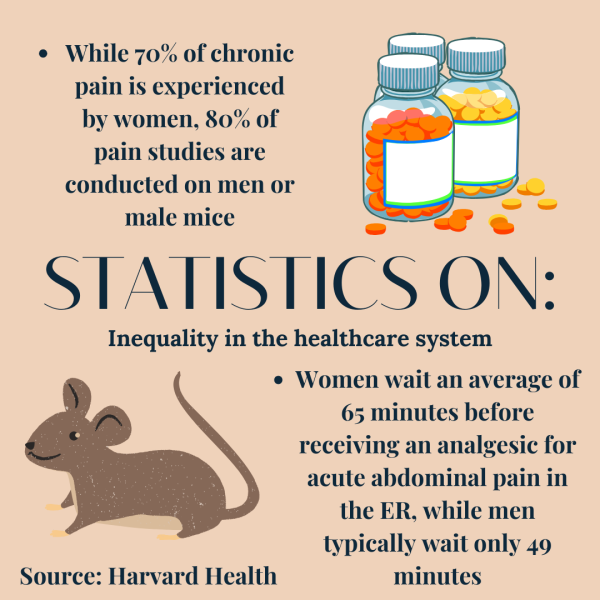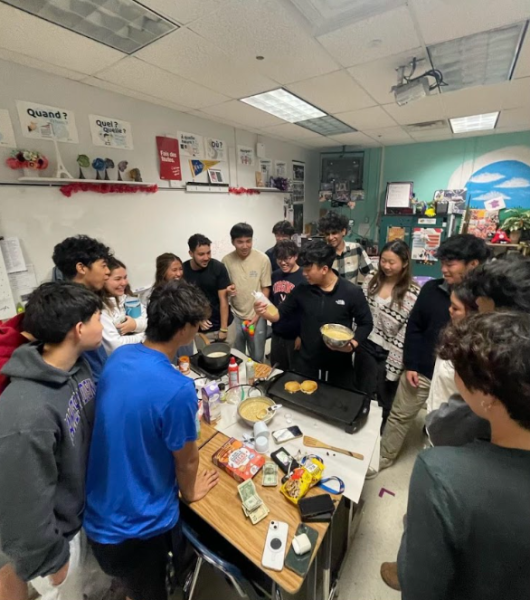Clubs and organizations raise money for various purposes
May 5, 2017
Nearly all student clubs and organizations require some funding from outside of school, and different clubs raise money in different ways. Some fundraising, like that done by the yearbook staff, goes toward the cost of the book itself. On the other hand, for clubs like DECA, funds are used for transportation, housing and participation fees at competitions.
Sometimes organizations set goals for the amount of money they need so that members are more motivated to raise funds.
“We have goals that were set by [yearbook adviser Mary Kay Downes] of how many books to sell,” senior and yearbook business team member Madison Park said. “She bases that [estimate] off of previous years and how many books she thinks we’re capable of selling.”
However, for other clubs, funds are monitored on more of an individual basis.
“We don’t really have goals set for how much to fundraise; [the amount] we fundraise is how much we get off of our trip,” senior and DECA member Komal Desai said. “So it’s not really a goal, but it’s an incentive.”
The ways in which clubs and organizations raise money can differ from club to club. For some, fundraisers at popular restaurants can be very effective, while for others, outreach and patronages are essential.
“We don’t [usually] do things like bake sales and fundraising outside of school,” Park said. “The business team and people on the staff sell business ads and patron ads. That’s how we raise the money for the book in addition to selling it.”
Although this may work for some organizations, alternative methods are more beneficial for others.
“We’ve done two or three bake sales, a car wash and a GoFundMe page so people can contribute. We also sold Yankee Candles,” Desai said.
Some clubs even use a combination of different methods of fundraising to ensure they have all the funds they need.
“We have membership dues, so everyone who joins the team has to pay a certain amount of money,” senior and business captain of the marketing subteam for robotics, Iulia Voina, said. “We have various fundraisers like events at restaurants where we get a certain percentage of the proceeds and bake sales. We also get a lot of our money from corporate donations.”
There is also an array of ways in which the funds are used, depending on the organization’s needs.
“A certain amount of the proceeds go to getting all of the parts that we need to get the robot, a lot of it goes to shipping cost,” Voina said. “Other funds go to transportation costs and housing costs for the competitions because most of them aren’t in the local area, so we have to stay overnight.”
Similarly, much of the funds raised by DECA go toward traveling and staying in hotels during competitions.
“The trips are really costly, a lot of students have to pay themselves,” Desai said. “Going to the West Coast, our trip was going to be about $1,500, and that’s a big payment to commit to. So the fundraising helps to lower this total cost.”
Although many fundraising efforts are student led, teacher sponsors and parent supporters step in sometimes to help.
“The teachers definitely help set up [fundraisers], they call Chipotle and stuff like that, but the bake sales [and other fundraisers] are pretty much student led,” Desai said. “The teachers may come out to help, but the students do a lot of work too.”
Whatever the funds are used for, fundraising helps extracurricular activities thrive.
“[Fundraising] is important because yearbook is a business,” Park said. “You need to have funds to buy the book and produce the book so that students can get the book.”












